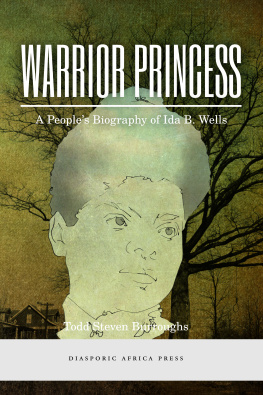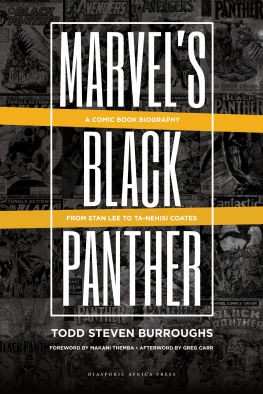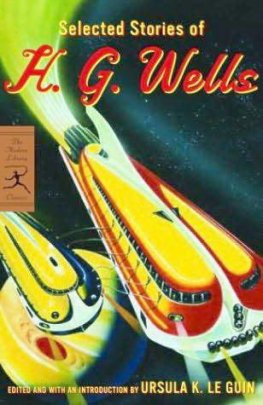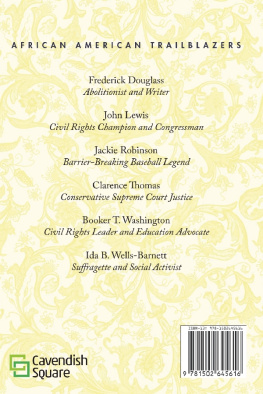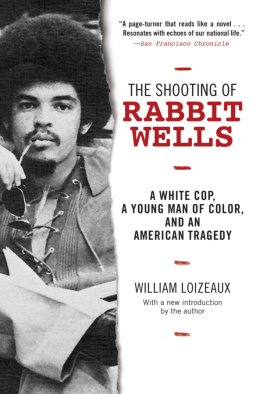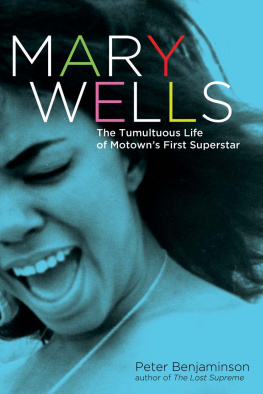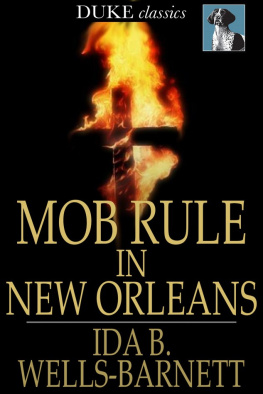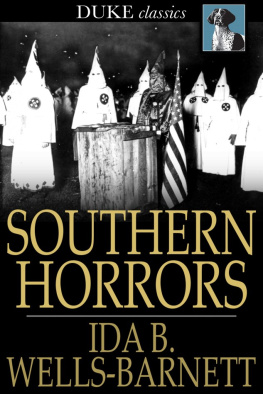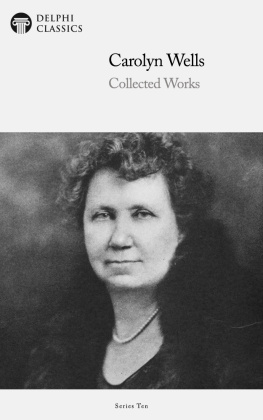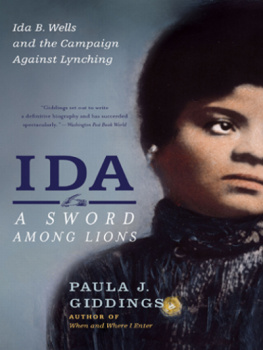Warrior Princess: A Peoples Biography of Ida B. Wells
To my sensei, Dr. Vicky Gholson (1950-2014), a creative genius and largely unsung hero who was In the Tradition of the 20th and 21st century Harlem activist, intellectual, artist, and visionary
INTRODUCTION
Ida B. Wells-Barnett (1862-1931) has gone from mid-twentieth century obscurity to a major twenty-first century subject in Womens Studies and the history of Black American media.
Her life was much more complex than the one paragraph portrait written of her: Black journalist, anti-lynching crusader. She was first and foremost a mother and wife. She was also a local Chicago community activist for decades.
She was a devout Christian who believed deeply in the Black church and in Black schools, even when those institutions didnt believe in her. She had no problem publicly criticizing Black ministers who failed to represent their flocks, and Black school systems when they failed the students in her charge. She would be fired and ostracized by many elements of the Black community for her stands.
She was a major leader of several movements: the suffragist movement, the Black womens club movement, as well as the National Association for the Advancement of Colored People. She was maneuvered out of power in many of the movements she led. It was especially despicable that, as the NAACP became more and more involved in anti-lynching, she was left out of its history, erased from the cause for which she risked her life!
Her independent spirit infused her work. She went out and did her own investigative reports on lynching. She wrote articles for Black newspapers, a relatively new vehicle that came out of Northern antebellum Black nationalism and the abolitionist movement, and she wrote pamphletssmall booklets that allowed her to narrate in detail what she saw, documented and believed about lynching.
Because of this independence, she was held at a distance by both Black male leaders and white female leadersand sometimes even by Black women leaders. Was it because she was a no-nonsense person who didnt suffer fools easily? Partly, but it was also because she could be intimidating, and many leaders wanted the spotlight for themselves. It was also because she lived and fought during the dominance of two Black leadership pillars: first, Booker T. Washington, and second, the white liberals and Black men who controlled the National NAACP.
Wells-Barnett never gave up writing and organizing. She relished a good fight her entire life. With the broken promises of Reconstruction, she had plenty of opportunities.
She is the historic link between Harriet Tubman, the great abolitionist and Civil War hero, and Ethel Payne, the pioneering twentieth century Chicago Black journalist who took up the journalism role she had pioneered. She lived during the time of the birth of Jim Crow and died 24 years before Rosa Parks refused to give up her bus seat to a white man, spurring the mass-action wing of the Civil Rights Movement. But by the time she died, white women and Black northern men and women had the right to vote, the NAACP was on its way to becoming the most powerful civil rights organization of all time, and the Black press, thanks to the societal changes of the twentieth century, was about to become the most powerful non-religious institution in Black communities.
Ida B. Wells-Barnett fought attempts to forget her while she lived. In addition to her articles, she wrote an autobiography, posthumously edited by her daughter. In the more than 80 years since her death, she has been the subject of at least three scholarly biographies, including a major one by a Black woman scholar, Paula Giddings. She was the subject of a PBS American Experience documentary: Ida B. Wells:A Passion for Justice, which aired in 1989. Her diary has been published, as well as a major collection of her journalism.
Wells was as fierce as Frederick Douglass, as important an activist as W.E.B. Du Bois, as innovative as Booker T. Washington and as powerful an advocacy journalist as William Monroe Trotter. But because she was a woman, she had been marginalized as a contemporary as well as a historic figure after her death.
She would be proud to know that her life and work has, in the twenty-first century, become a major landmark of nineteenth century anti-lynching studies, Black studies, Womens Studies, and Feminist Studies.
This work is not a work of biography as much as it an ideological portrait from a Black feminist perspective. Its a book that discusses the ideas and institutions around Ida B. Wells-Barnett as she spent her life in teaching, journalism, anti-lynching campaigns, and civil rights and political organizing. It discusses how she balanced white racism of both genders, and sexism from Black male leaders. It attempts to show how one Black woman created and maintained her selfhood amidst such challenges.
This book is for Black women activists of the twenty-first centurythose who are committed to showing that Black lives have always mattered most to them. It is for the young Black women who have spearheaded major protests and demonstrations during the presidencies of both Barack Obama, a Black Democrat, and Donald Trump, a white Republican. I want the struggles within this book to resonate with them.
Wells-Barnetts personal history tells us not only that theres no easy road, but no reward for standing for the basics of civilization. It shows that victory does not equal celebration or credit. That when you use a sword to cut down injustice, the people who pass through the barriers you broke can have selective amnesia.
Black female activism is a curious thing. Black women dont posture, they build. Black women dont win; they rescue. Their reward is the stability of the Black family and the Black community. Other than equality, Ida B. Wells-Barnett wanted nothing more than that.
She was not afraid of the consequences of being open and active to get what she wanted. Her struggles were not only against enemies, but also against friends like the NAACP, who wanted her present but quiet; not only against white male racists who wanted to kill her, but also against white women who wanted her literally in the back of the suffragist march line.
Ida B. Wells-Barnett demanded her own terms in life. She got them; she lived the life she wanted. But it was always a struggle, and the only reward was being able to express herself and live her own values in a deeply repressive time.
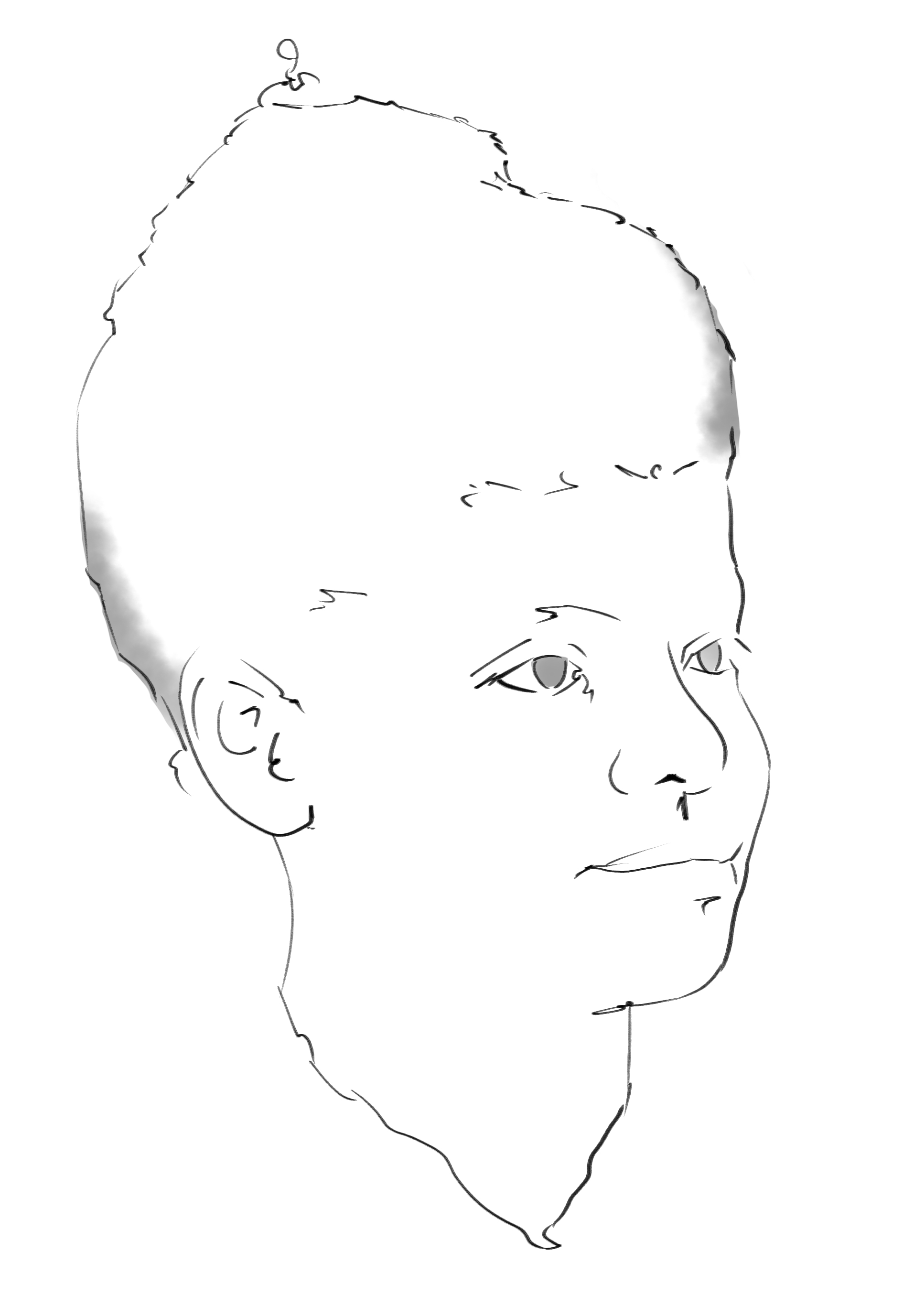
1.jpg
CHAPTER ONE
A Post-Civil War Life of Hope, Destroyed by Plague; Parents and an Adolescence Stolen
Ida Bell Wells, one of the freest Black women of the late nineteenth and early twentieth century, was born into slavery on July 16, 1862, to enslaved parents, in Holly Springs, Mississippi. She was the eldest of eight.
Her parents, James Wells and Elizabeth Warrenton Wells, were filled with hope for the free future that came with the Emancipation Proclamation of 1863 and the end of the Civil War in 1865. The couple had been married as enslaved persons, but they got married again as free people.
James had skills from slavery that transferred into his new freeman life. James was the son of his master, Morgan Wells. He became a carpenter because Morgan made him learn the trade for use on the plantation. James mother was named Peggy, and she was a slave.
Elizabeth, who, as a young woman, had been sold along with her two sisters, was a homemaker, a well-reputed cook (she met her husband because she was the cook to the white man from whom James learned carpentry), and a devoted Sunday School attendee.

